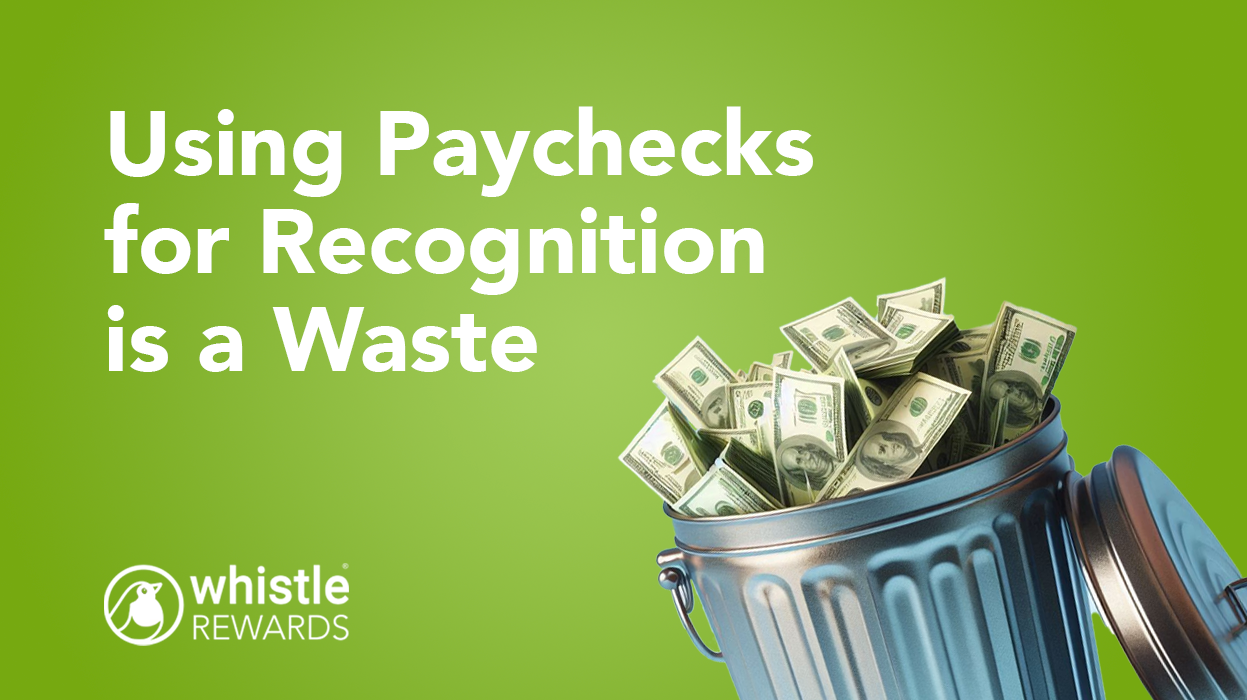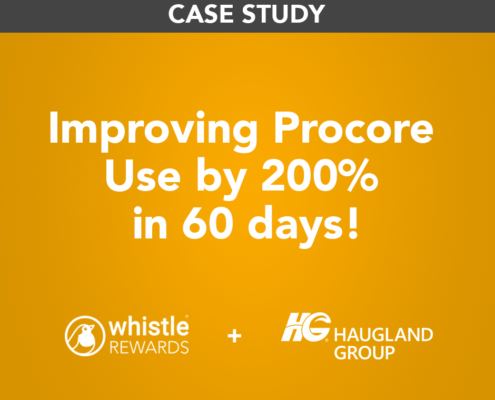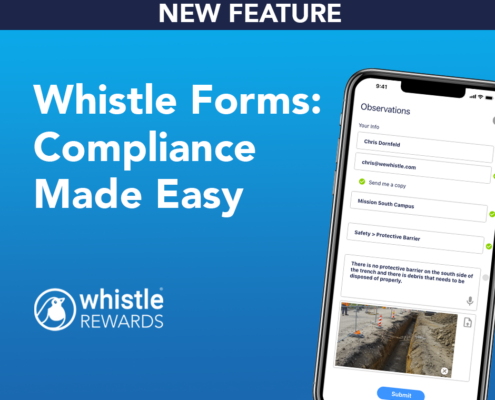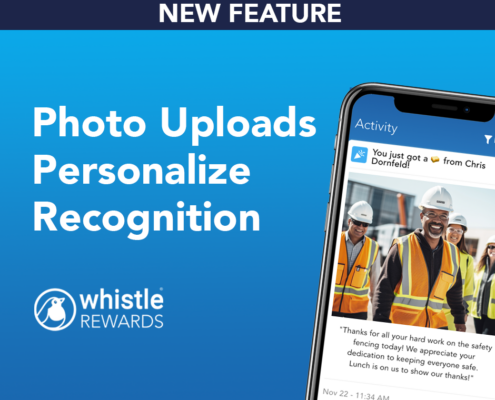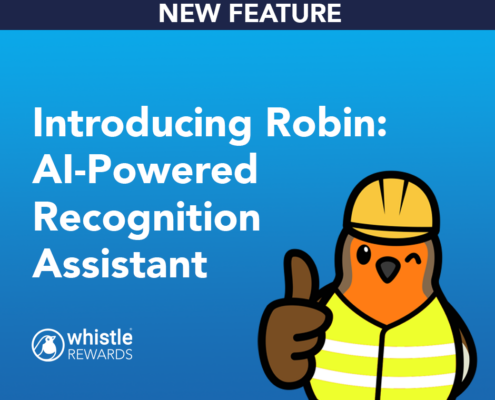Using Paychecks for Recognition is a Waste
Imagine you’re eyeing that $12 sandwich at your favorite deli. Suddenly, the cashier says, “Oh, we’ve got a $10 off deal today!” You practically feel like you’ve won the lottery, grinning like you’ve discovered buried treasure. You’re getting that artisanal turkey and avocado masterpiece for just two bucks. Now shift to the appliance store: you’re buying an $1800 refrigerator with Bluetooth and an ice maker that can tweet (or can X?). They mention a $10 discount, and it barely registers. It’s like someone offering you a free straw when you just bought a yacht.

When it comes to recognizing and incentivizing employees, many organizations default to adding bonuses or rewards to a paycheck. While this approach seems logical—it’s simple, streamlined, and tied to the employee’s primary source of income—it’s far from effective when viewed through the lens of behavioral science.
Recognition, incentives, and rewards are tools to encourage specific behaviors, build engagement, and reinforce a culture of appreciation. To achieve these goals, the method of delivering rewards must maximize timing, frequency, and salience—three critical levers that influence behavior. Using paychecks for rewards undermines all three.
Timing: Rewards Must Be Immediate to Reinforce Behavior
Decades of research in behavioral psychology emphasize the importance of timely feedback. A study by Skinner and Ferster demonstrated that behaviors are most effectively reinforced when rewards follow the desired action immediately. When recognition is delayed—even by a few days—the connection between action and reward weakens.
Paychecks are typically issued weekly at best, meaning any reward added to a paycheck comes long after the behavior it aims to encourage. By the time the employee sees the reward, its motivational impact is diluted, and the opportunity to reinforce the behavior has been lost.
Frequency: Rewards Need to Be Frequent to Build Habits
Frequent rewards are more effective at shaping and sustaining behavior over time. This principle is rooted in the concept of variable reinforcement schedules, which are known to create stronger habits compared to infrequent, lump-sum rewards.

Paychecks, by design, are infrequent. Adding a reward to a paycheck turns a potentially recurring moment of recognition into a sporadic event. If the goal is to build lasting habits—whether it’s hitting safety targets, meeting deadlines, or showing exceptional teamwork—recognition needs to happen as close to “in the moment” as possible, not in bulk every few weeks.
Salience: Make the Reward Memorable and Distinct
Salience refers to how noticeable and meaningful the reward feels. A highly salient reward not only creates a stronger emotional connection but also increases the likelihood that the behavior will be repeated. When a reward is added to a paycheck, it becomes indistinguishable from regular compensation. Employees don’t experience the same emotional impact as they would with a dedicated, separate reward. It feels transactional, not celebratory, and the critical psychological benefit of being seen and appreciated is diminished.
Why Dedicated Rewards Matter
For recognition to be effective, it should stand out as an intentional moment that connects directly to the behavior being rewarded. Using a platform like Whistle Rewards solves this problem by creating an experience around rewards—whether it’s through a custom-branded Visa card or a thoughtful, immediate acknowledgment. These tools allow leaders to:
- Deliver rewards in real time, ensuring the timing reinforces the desired behavior.
- Recognize frequently, aligning incentives with the cadence of workplace actions.
- Make rewards salient, separating them from compensation and creating a moment of celebration.
The Bigger Picture
Recognition isn’t just about giving a bonus; it’s about building a culture of appreciation and motivation. When rewards are integrated into paychecks, they become forgettable and transactional. By using immediate, branded, monetary rewards, organizations can tap into the psychological principles that drive human behavior—encouraging not just better performance, but stronger engagement and loyalty.

